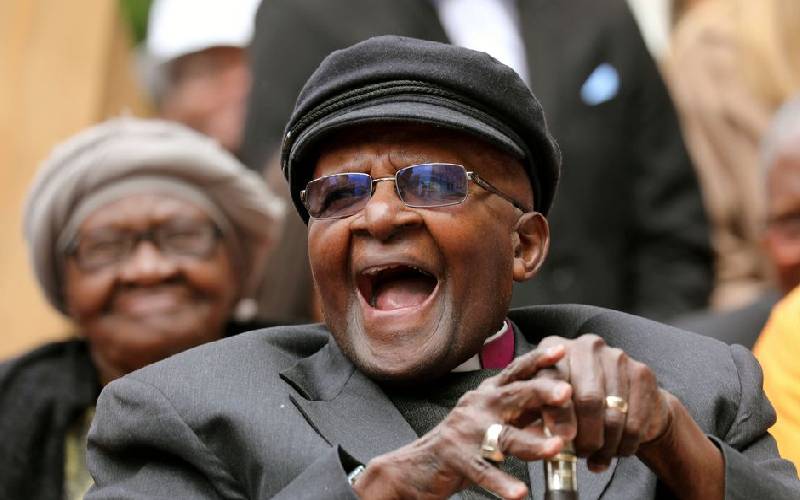×
The Standard e-Paper
Smart Minds Choose Us

Archbishop Desmond Tutu at St George's Cathedral in Cape Town, South Africa, on October 7, 2017. [Reuters]
Archbishop Desmond Tutu, Nobel Peace Prize laureate and veteran of South Africa's struggle against white minority rule, has died aged 90, the presidency said on Sunday.